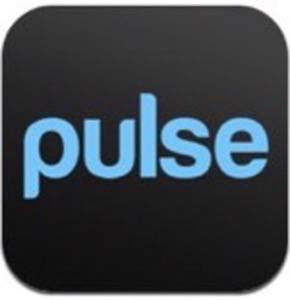In the world of personalized news readers on a tablet, the competition is hot between market leader Flipboard, upstart Zite, Feedly and Pulse . Flipboard hardly ever adds new features anymore (they are too busy cutting deals with publishers and reading all their glowing reviews in the iTunes app store) but last night competitor Pulse added a simple little feature that Flipboard and any other mobile or tablet reader ought to add as well: a bookmarklet users can click to save an article from the Web to read later in Pulse.

Conventional wisdom says that asking users to download a browser plug-in or drag and drop a bookmarklet will cause a huge drop in adoption – that drooling is the only operation most web users are able to perform and should define the outer limit of tools offered to them. I’m not so sure that’s the case anymore, though. Our desktops and our mobile devices ought to be able to act as seamless if different interfaces for a world of personalized information, streaming above all these particular devices, up in the cloud.
Maybe We’ve Found the User Experience Problem…and Maybe it is Us.
Facebook founder Mark Zuckerberg says that the vast majority of Facebook users can’t even be bothered to respond to friend requests – so maybe the day still isn’t here when the web can ask anything of its users, even in exchange for the most fabulous functionality.
Maybe the web, maybe all of media, will always be a lean-back experience for the majority of humanity. That would be terrible, but I think it’s far too soon to draw that conclusion.
The new Pulse bookmarklet lets you save an article you find on the Web into a stream of links you can read later on your mobile device in Pulse.
It’s a simple feature but an awfully smart one that more apps ought to support. It’s almost silly that Pulse’s little bookmark is getting as much media coverage as it is. But in the effort to make everything as simple as possible, to make sure that mainstream users can adopt new technologies better than they did the first wave of Web 2.0 (bookmarklets, RSS, wikis, podcasts) – a lot of functionality gets lost. It is possible that what these social technologies needed was a greater emphasis on design, not a radical decline in functionality. Pulse and Flipboard have a very different ratio of images to text than traditional feed readers – but why does that have to come with handcuffing users from adding their own articles or feeds easily into their readers?
Right now, if you’re navigating around the web on your desktop, there’s not a really simple, fast way to save an article to read in Flipboard later. That’s silly.
Even with the addition of this new feature, Pulse remains hobbled by an inability to import large OPML files of RSS feeds.
It’s great to see so much competition in this space; now let’s see that competition heat up the pace of innovation and delivery of new features to users.

















